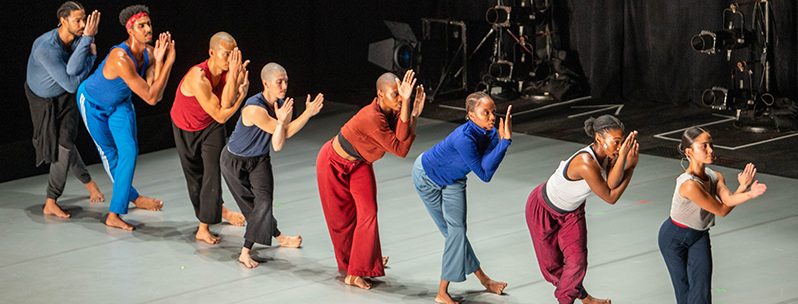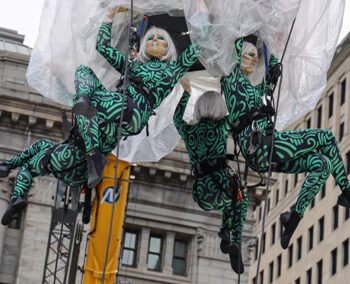By Debra Cash for ArtsFuse
The struggle is to define what the problem is — and to allow the questions to have big, destabilizing, and more honest answers.
Bill T. Jones/Arnie Zane Company in What Problem? Co-presented by FirstWorks and Brown Arts Institute at Brown University, at the VETS, Providence, November 4.
Bill T. Jones has long been as much a soothsayer as a choreographer. As What Problem? opens, Jones, still muscular and arrestingly handsome perching behind a metal music stand, begins to speak in tongues. My ear reached for meaning but the speech was a shattered mix of phrases, religious quotations, and the lyrics to America (My Country ‘Tis of Thee). It sounded as if the original had been translated from an unfamiliar language while retaining its peculiar syntax.
Jones was reading a speech he had first experienced as an 11-year-old at the Lincoln Memorial in 1963: Martin Luther King’s I Have a Dream speech. But he was reciting it backwards, with the words in retrograde. Jones’s speech resembled nothing so much as Walter Benjamin’s stunned angel of history:
Where we perceive a chain of events, he sees one single catastrophe which keeps piling wreckage and hurls it in front of his feet. The angel would like to stay, awaken the dead, and make whole what has been smashed. But a storm is blowing in from Paradise; it has got caught in his wings with such a violence that the angel can no longer close them. The storm irresistibly propels him into the future to which his back is turned, while the pile of debris before him grows skyward. This storm is what we call progress.
Jones’s dancers begin to appear as the scrambled text ends, walking, humming, striking luxuriant stretching poses, inhabiting all the time in the world. Then Jones begins to tell another story, a comprehensible one, about the character Pip in Moby Dick, a “forgotten” icon of the weak, Black entertainer. Back in high school when he was first assigned the book, Jones shares, he didn’t take much notice of Pip — but now, he muses, he finds that the role of the “Black exceptional one” is disquieting and all too relevant…














